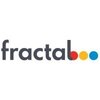Filter interviews by
KDataScience Front end Developer Interview Questions and Answers
KDataScience Front end Developer Interview Experiences
1 interview found
I was interviewed before Feb 2023.
(1 Question)
- Q1. Previous company experience
(1 Question)
- Q1. Profile technical questions
Technical task was given as per profile
(1 Question)
- Q1. Salary discussion
(1 Question)
- Q1. Likes about the company, challenges acceptance
Top trending discussions






Interview questions from similar companies

I applied via LinkedIn and was interviewed in Nov 2024. There was 1 interview round.
(2 Questions)
- Q1. Mostly js questions, not so many of angular or react.
- Q2. Like fizbuzz or things like that.
Interview Preparation Tips

(2 Questions)
- Q1. JavaScript Related Questions
- Q2. ReactJs Related Questions
(2 Questions)
- Q1. Reactjs Use Effects and UseRef
- Q2. JavaScript Closures,Map,CallBack
Interview Preparation Tips

Coding a frontend UI from provided image. And creating a fucntional star rating system
(2 Questions)
- Q1. Designing a Component API in React using Typescript.
- Ans.
Designing a Component API in React using Typescript involves defining props, state, and methods for the component.
Define the props interface to specify the expected input data for the component
Use typescript types to ensure type safety and prevent runtime errors
Define the state interface to manage the internal state of the component
Implement methods to handle user interactions and component logic
Document the component
- Q2. Create a function that can clear all the timer ids at once.
- Ans.
Function to clear all timer ids at once
Create an array to store all timer ids
Iterate through the array and clear each timer id using clearTimeout() function
Skills evaluated in this interview

I applied via Naukri.com and was interviewed in Oct 2024. There was 1 interview round.
(1 Question)
- Q1. Introduction life cycle looks pipe @input @output

(2 Questions)
- Q1. What is event bubbling
- Q2. What is TDD and why TDD
Interview Preparation Tips

I applied via Naukri.com and was interviewed in Oct 2024. There were 2 interview rounds.
Reactive form and crud operations pipes crud operations
(1 Question)
- Q1. Basic understanding of js and angular is must expeciallly how js works questions on arrays objects shallow deep copy

(2 Questions)
- Q1. Explain about react js?
- Ans.
React JS is a JavaScript library for building user interfaces.
React is component-based, allowing for reusable UI elements.
Uses a virtual DOM for efficient updates to the actual DOM.
Supports server-side rendering for improved performance.
Uses JSX syntax to write HTML within JavaScript code.
State management is handled using props and state.
- Q2. Explain about angular?
- Ans.
Angular is a popular front-end framework developed by Google for building dynamic web applications.
Angular is based on TypeScript, a superset of JavaScript.
It uses a component-based architecture for building reusable UI components.
Angular provides features like data binding, dependency injection, and routing.
It has a powerful CLI for scaffolding and managing projects.
Angular has a large ecosystem of libraries and tools
Skills evaluated in this interview

I applied via Naukri.com and was interviewed in Mar 2024. There was 1 interview round.
(14 Questions)
- Q1. Let var const in JavaScript
- Ans.
var and const are used to declare variables in JavaScript, with var being mutable and const being immutable.
var is used to declare variables that can be reassigned and updated
const is used to declare variables that cannot be reassigned or updated
let is another keyword used for declaring variables, similar to var but with block scope
- Q2. Error boundary and how to handle
- Ans.
Error boundary is a React component that catches JavaScript errors anywhere in a component tree and logs those errors.
Error boundaries are React components that catch JavaScript errors in their child component tree.
They are used to prevent the entire UI from crashing due to a single error.
Error boundaries work like a JavaScript catch {} block, but for components.
They are defined using componentDidCatch lifecycle method
- Q3. Event.bind and event.property
- Q4. Use of never in typescript
- Ans.
The 'never' type in TypeScript represents a value that will never occur.
Used to indicate that a function will not return a value
Commonly used in union types to exclude certain values
Helps catch potential errors at compile time
- Q5. What hooks you have used
- Ans.
I have used React hooks such as useState, useEffect, useContext, and useRef in my projects.
useState
useEffect
useContext
useRef
- Q6. What is difference between use reducer and use state
- Ans.
useReducer is preferred for managing complex state logic, while useState is simpler for basic state management.
useReducer is more suitable for managing complex state logic and multiple state values
useState is simpler and more straightforward for basic state management with a single value
useReducer allows for more organized and centralized state updates through actions and reducers
useState is commonly used for simple co
- Q7. Why we use state and props
- Q8. How you will pass data from parent to child
- Ans.
Data can be passed from parent to child components in React using props.
Pass data as props from parent component to child component
Use state management libraries like Redux or Context API for complex data sharing
Use callback functions to pass data from child to parent components
- Q9. Write your own custom hook
- Ans.
Custom hook to fetch data from an API
Create a function that uses the useState and useEffect hooks
Use the fetch API to make a request to the desired endpoint
Return the fetched data and loading state in an array
- Q10. Explain map filter and reduce functions
- Ans.
Map, filter, and reduce are higher-order functions in JavaScript used to manipulate arrays.
Map: Transforms each element in an array and returns a new array with the transformed elements.
Example: [1, 2, 3].map(num => num * 2) returns [2, 4, 6].
Filter: Returns a new array with elements that pass a certain condition.
Example: [1, 2, 3].filter(num => num > 1) returns [2, 3].
Reduce: Applies a function against an accumulator ...
- Q11. How you can clone an object
- Ans.
To clone an object in JavaScript, you can use the spread operator or Object.assign() method.
Use the spread operator to create a shallow copy of an object: const clonedObj = { ...originalObj };
Use Object.assign() method to create a shallow copy of an object: const clonedObj = Object.assign({}, originalObj);
For deep cloning, you can use libraries like Lodash or write a custom function to recursively clone nested objects.
- Q12. What are the three stages of event propagation and how to handle it
- Ans.
Event propagation consists of three stages: capturing, target, and bubbling.
Capturing phase: Events are captured from the outermost element to the target element.
Target phase: Event reaches the target element where the event originated.
Bubbling phase: Events bubble up from the target element to the outermost element.
- Q13. How to handle errors in your react application
- Ans.
Errors in a React application can be handled by using error boundaries, try-catch blocks, and displaying error messages to users.
Use error boundaries to catch errors in components and display a fallback UI
Wrap code that may throw errors in try-catch blocks to handle exceptions
Use libraries like React Error Boundary to easily implement error handling
Display error messages to users to inform them about the issue and poss
- Q14. Write code to call fake api and display the title where category is “some category “
Skills evaluated in this interview

I applied via Referral
(1 Question)
- Q1. It was a array question. I was told to return a object from a function which would contain getting all the array elements, adding a element, deleting a element. The test was on hacker rank.
(1 Question)
- Q1. This was basically a one on one round. I was asked basics of HTML, CSS and React. Questions like Hoisting, Prop Drilling, Context API. Not only do you need to know what the topics are. But I was asked to i...
(1 Question)
- Q1. Basic Company Details and Salary Negotiations
Interview Preparation Tips
- React.Js
- HTML
- Javascript
- OOPS
KDataScience Interview FAQs
Tell us how to improve this page.
Interview Questions for Popular Designations
- Senior Front end Developer Interview Questions
- Front end Engineer Interview Questions
- Front end Web Developer Interview Questions
- React Js Frontend Developer Interview Questions
- Angular Frontend Developer Interview Questions
- Frontend Developer Intern Interview Questions
- Front Office Executive Interview Questions
- UI Frontend Developer Interview Questions
- Show more
Front end Developer Interview Questions from Similar Companies
KDataScience Front end Developer Reviews and Ratings
based on 2 reviews
Rating in categories
|
Software Developer
7
salaries
| ₹2.4 L/yr - ₹3.1 L/yr |
|
Data Scientist
7
salaries
| ₹2.2 L/yr - ₹6 L/yr |
|
Senior Data Scientist
6
salaries
| ₹3.7 L/yr - ₹6 L/yr |
|
UI/UX Designer
4
salaries
| ₹4.5 L/yr - ₹5.3 L/yr |
|
Front end Developer
4
salaries
| ₹3 L/yr - ₹5 L/yr |

Fractal Analytics

Mu Sigma

Tiger Analytics

LatentView Analytics
Calculate your in-hand salary
- Home >
- Interviews >
- KDataScience Interview Questions >
- KDataScience Front end Developer Interview Questions



